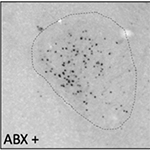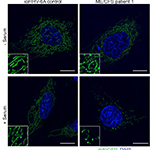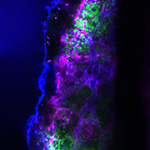Gut Microbes Influence How Rat Brains React to Opioids
Antibiotic treatment — which depletes gut microbes — drastically changes the parts of a rat’s brain that are activated during opioid addiction and withdrawal.
Antibiotic treatment — which depletes gut microbes — drastically changes the parts of a rat’s brain that are activated during opioid addiction and withdrawal.

Researchers at UC San Diego School of Medicine and three German universities describe an underlying biological basis for myalgic encephalomyelitis/chronic fatigue syndrome, illustrating how efforts by the body to boost immune system protections can come at physiological cost elsewhere.

The coronavirus pandemic has produced startling images, not just of besieged emergency rooms, but of deserted highways, beaches, and other public places—of life interrupted everywhere.

Movement and social interaction remains a basic need for everyone, and UC San Diego Recreation has created a space for both. Called the Playground, it welcomes all campus community members to dance, meditate, compete in esports, learn to draw and more through free virtual classes.
UC San Diego nanoengineers received a Rapid Response Research (RAPID) grant from the National Science Foundation to develop—using a plant virus—a stable, easy to manufacture COVID-19 vaccine patch that can be shipped around the world and painlessly self-administered by patients.

Researchers at University of California San Diego School of Medicine and Moores Cancer Center used CRISPR technology to identify key regulators of aggressive chronic myeloid leukemia.

Keep up with all the latest from UC San Diego. Subscribe to the newsletter today.
You have been successfully subscribed to the UC San Diego Today Newsletter.